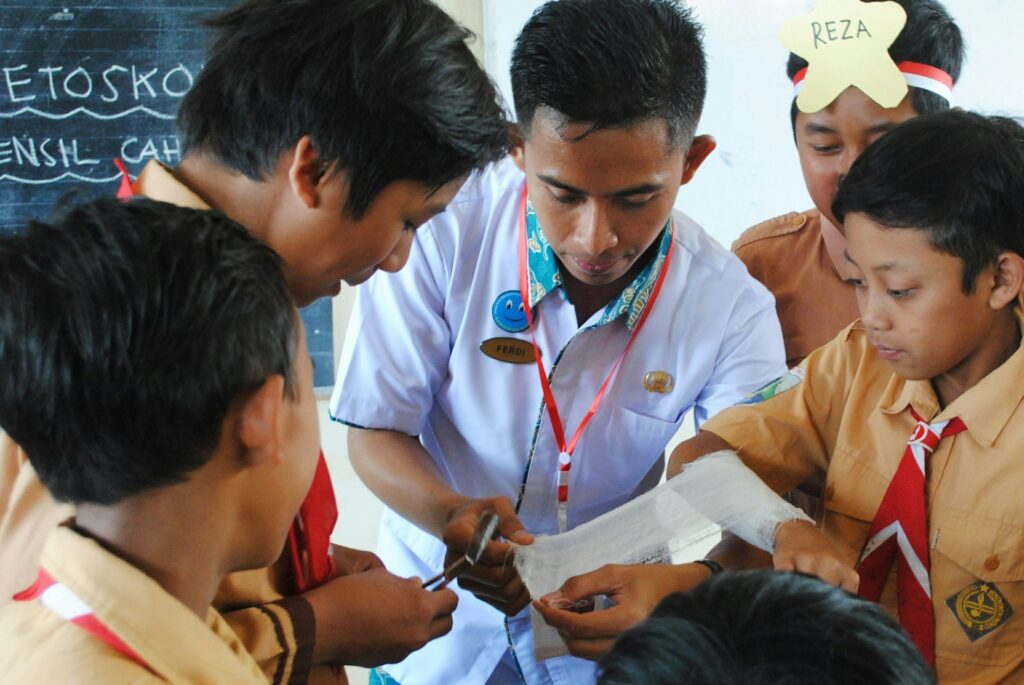Saudi Social Infrastructure PPPs are central to Saudi Arabia’s Vision 2030, especially within education and healthcare. Historically dominated by government, these sectors now embrace private-sector innovation to boost efficiency. Saudi Arabia plans over 200 PPP projects, reflecting its commitment to leveraging private expertise. Transitioning smoothly, the National Center for Privatization & PPP (NCP) manages these projects under the robust 2021 Private Sector Participation (PSP) Law, ensuring transparency and efficiency in procurement.
Enhancing Education through PPPs
The education sector provides vast opportunities for PPPs, notably in primary and secondary schools. Saudi Arabia manages around 38,000 schools, with 80% publicly operated. Vision 2030 aims to construct and upgrade 4,000 schools through PPPs. The initial phase, with 60 schools in Jeddah and Makkah, achieved financial closure in 2020, and another 60 schools in Medina followed closely. Using the Design-Build-Finance-Maintain (DBFM) model, these PPPs ensure quality infrastructure and efficient long-term management. This model reduces governmental burdens significantly by transferring responsibilities to private partners.
Learning from Global Education PPP Examples
Globally, education PPPs have shown remarkable success. For instance, Greece constructed 24 schools benefiting over 6,500 students, ensuring timely, quality infrastructure. Similarly, Brazil’s Belo Horizonte built 37 schools rapidly within two years, significantly improving access for 18,000 students. Saudi Social Infrastructure PPPs replicate these successes by bundling multiple school projects, optimizing economies of scale. Additionally, PPP expansions into services such as IT, transportation, and maintenance can further enhance operational efficiency.
Higher Education and Vocational Training Initiatives
Saudi Arabia targets placing five universities among the global top 200 by 2030. PPPs play a critical role by developing advanced research facilities and modern campuses, promoting international collaboration, attracting global talent, and aligning education with industry demands. Vocational training PPPs, like the National Power Academy, involve industry-specific training programs. These partnerships enhance employability by addressing skills gaps through targeted, practical training aligned with market needs.
Healthcare Infrastructure Expansion
Healthcare PPPs are essential to increasing private sector participation from 25% to 30%. Significant projects include the 244-bed Al-Ansar Hospital in Madinah, attracting 87 EOIs globally. Additionally, long-term care and rehabilitation centers in Riyadh and Dammam collectively garnered over 400 EOIs. Utilizing the DBFM model, these PPPs speed up project delivery, maintain high-quality services, and effectively transfer risks to private entities. Consequently, healthcare capacity expands significantly, integrating modern technology and advanced management practices.
Promoting Medical Tourism and Research
Saudi Arabia aims to establish itself as a leading regional hub for medical tourism by developing PPP-driven medical cities. Notably, projects like King Abdullah Medical City are being tendered as regional initiatives to integrate world-class healthcare with pilgrimage services. These facilities are designed to attract international patients by combining medical treatment with religious tourism. Partnerships such as the Cleveland Clinic Abu Dhabi illustrate the power of involving globally recognized healthcare providers in such ventures. Through these public-private collaborations, Saudi Arabia is advancing high-quality healthcare, driving research innovation, and supporting economic diversification. Under Vision 2030, the PPP framework facilitates substantial investment, expert management, and international engagement to strengthen the country’s position in global medical tourism.
Learning from International Healthcare Successes
Turkey’s extensive healthcare PPPs serve as successful benchmarks. Projects such as Adana City Hospital, a 1,550-bed facility with seismic safety, show significant improvements in healthcare delivery and patient satisfaction. Turkey attracted international financing through strong contractual frameworks and risk mitigation strategies, including international arbitration and political risk insurance. Saudi Social Infrastructure PPPs similarly emphasize transparent, robust legal frameworks under the 2021 PSP law, boosting investor confidence and sustainable management.
Sector-specific Strategies and Frameworks
To optimize PPP outcomes, Saudi Arabia should establish clear sector-specific strategies, defining project scopes and timelines explicitly. Dedicated PPP nodes or units within education and health ministries can enhance oversight and project preparation. Standardized contracts and templates can simplify procurement processes, while Viability Gap Funding (VGF) and incentives like land provision and tax breaks further attract investment. Rigorous regulatory oversight, transparent procurement practices, and stakeholder engagement frameworks effectively address public concerns and build confidence in PPP initiatives.
Overcoming PPP Implementation Challenges
Effective management of stakeholder engagement, regulatory hurdles, and investor confidence remains essential for the success of Saudi Social Infrastructure PPPs. Transparent communication and early stakeholder involvement can prevent misunderstandings and build public trust in PPP initiatives. Capacity-building programs, coupled with technical advisory support from international experts, enhance institutional readiness and execution capabilities within the public sector. Transparent procurement systems, supported by financial guarantees and robust arbitration mechanisms, help reinforce private-sector confidence. In addition, proactive contract administration and rigorous performance monitoring ensure that service quality and value-for-money are maintained throughout the project lifecycle.
Conclusion: A Vision for Saudi Arabia’s Future
Saudi Social Infrastructure PPPs significantly enhance public services and support economic diversification. By adopting global best practices, maintaining transparent regulations, and effectively managing stakeholder and investor relations, Saudi Arabia positions itself as a global leader in PPP implementation. These initiatives substantially advance educational and healthcare services, aligning with Vision 2030’s transformative goals. Through strategic partnerships, Saudi Arabia is set to deliver world-class services, creating lasting benefits for its citizens.





